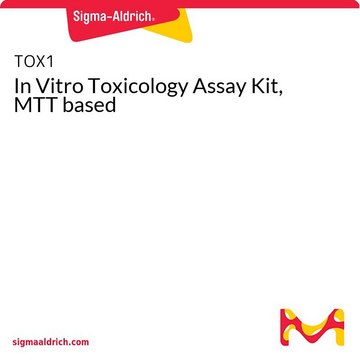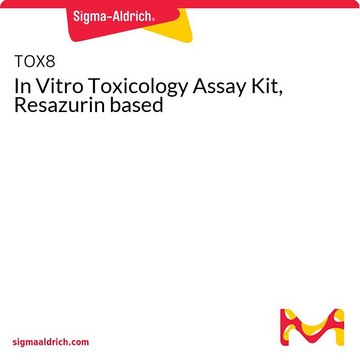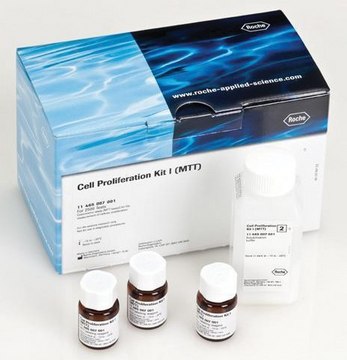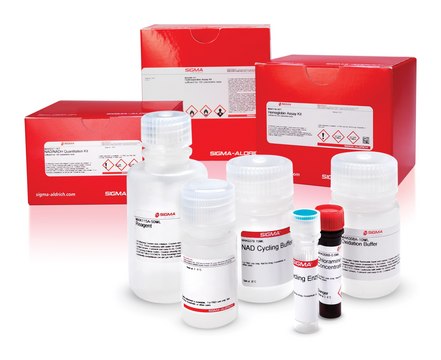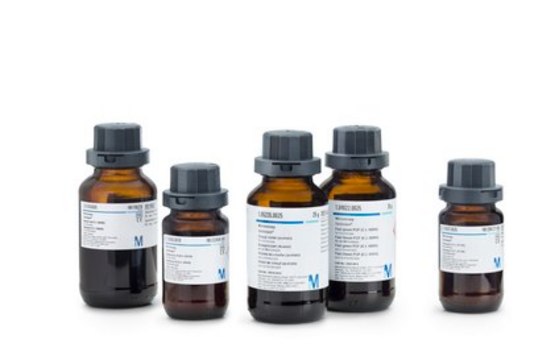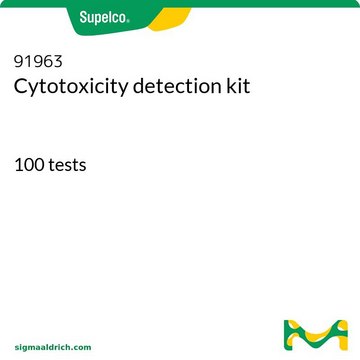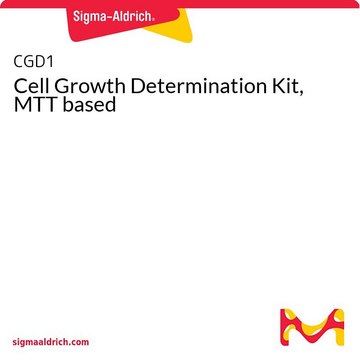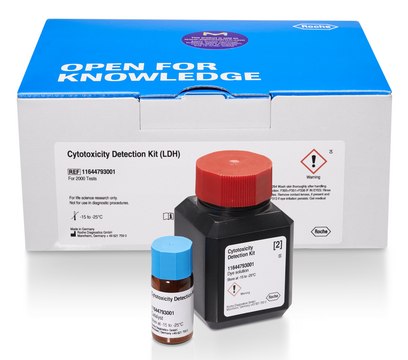TOX4
In Vitro Toxicology Assay Kit, Neutral Red based
Synonym(s):
NR uptake assay, Neutral red assay
Sign Into View Organizational & Contract Pricing
All Photos(1)
About This Item
UNSPSC Code:
12352207
NACRES:
NA.84
Recommended Products
form
liquid
Quality Level
usage
kit sufficient for 1,000 tests
packaging
pkg of 1 kit
storage condition
dry at room temperature
λmax
540 nm
application(s)
cell analysis
detection
detection method
colorimetric
storage temp.
2-8°C
General description
For spectrophotometric measurement of viable cells. Absorbance of converted dye is measured at a wavelength of 540 nm.
Application
In Vitro Toxicology Assay Kit, Neutral Red based has been used:
- to measure the lysosomal enzyme activity in HB8902 cells
- to study the cell viability of human alveolar epithelial cells
- to study the cell viability in fibroblasts
Biochem/physiol Actions
Neutral red (NR) is a red dye that accumulates in the lysosome by actively transferring across the cell membranes. The dye is extracted and the uptake is quantitated by spectroscopy. The NR uptake assay is the most commonly used cytotoxicity test. It is widely applicable in environmental and biomedical studies to estimate the number of viable cells in culture. The NR dye in vitro tissue culture studies is used in assessing viral cytopathogenicity and detection of toxic compounds.
signalword
Danger
hcodes
Hazard Classifications
Carc. 1B - Flam. Liq. 3 - Skin Sens. 1
Storage Class
3 - Flammable liquids
wgk_germany
WGK 3
flash_point_f
73.4 °F
flash_point_c
23 °C
Choose from one of the most recent versions:
Already Own This Product?
Find documentation for the products that you have recently purchased in the Document Library.
Customers Also Viewed
Our team of scientists has experience in all areas of research including Life Science, Material Science, Chemical Synthesis, Chromatography, Analytical and many others.
Contact Technical Service